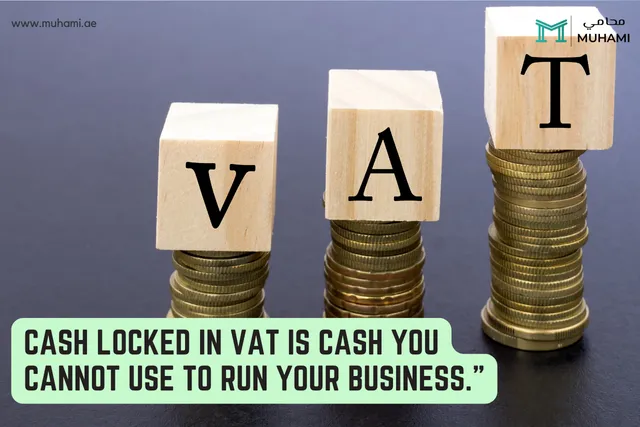Must-Have Legal Documents for Every Startup in the UAE

Starting a business in the UAE has become easy and fast. However, every startup has to follow and comply with UAE laws for the smooth functioning of its business. UAE Laws are strict, and in case of violation, companies must pay a considerable amount in fines, which in certain instances can even lead to the revocation of their license.
One of the most important aspects each business in the UAE must ensure is proper documentation. Correct paperwork and documentation can smooth many other processes, from managing human resources to protecting valuable IP.

This article covers crucial business and legal documents required to start a commercial enterprise within the UAE, which include:
- UAE Trade License(s)
- By-Law Guidelines
- Shareholder Agreement
- Partnership Agreement
- Immigration Establishment cards
- Non-disclosure agreements (NDAs)
- Contracts and employment letters
- Trademarks
- Asset protection: Will for Expatriate Business Owners
1. UAE Trade License
A license is required to engage in any business activity in the UAE. Depending on the activity, there are several categories, including commercial, industrial, professional, and more.
The license contains all the necessary information about the Company including the legal name and type of the Company, the validity of the license, license number, company address and contact details, manager information, a brief description of business activities, names of business partners, nationality and their shareholding, as well as company capital.
2. UAE Company By-laws: The Memorandum of Association (MoA) and Articles of Association (AoA)
The Company's by-laws, such as the MoA and AoA, as may be applicable, are considered the Company's bible. These are corporate documents signed by the founder members or partners who give their consent to form a company. As per the UAE regulations, every shareholder must consent to the opening of a company. The by-laws outline the Company's structure, activities, and the relationship between the Company and its shareholders. This includes the board of directors and anyone with significant control or influence.
3. Shareholder Agreement
A shareholder agreement is a legally enforceable contract between the Company's shareholders. It addresses issues that might not be covered in the MoA or AoA, such as the transfer of shares, dividend policies, dispute resolution mechanisms, and decision-making procedures. This agreement aids in maintaining transparency and fostering harmonious relationships among shareholders.
4. Partnership Agreement
If you intend to launch a business in collaboration with others, a partnership agreement is essential. It deals with the rights, responsibilities, profit distribution, and decision-making procedures among partners. This agreement should cover elements such as capital contributions, management duties, dispute resolution, and the procedure for admitting or removing partners.
5. Immigration Establishment Cards
It is mandatory for every UAE company, whether mainland or free zone, to have an immigration establishment card. The application for this card is made to the General Directorate of Residency and Foreigners Affairs, and it permits the holder to obtain visa approvals for any expatriate staff they wish to recruit.
Without this card, companies cannot apply for employee visas and, therefore, cannot employ any person from outside the GCC.
6. Non-Disclosure Agreement (NDA)
With the recent enforcement of UAE Data Protection Laws, the country has shown its intentions concerning the protection of Data. As legal consultants, we cannot emphasise enough the importance of executing NDAs with employees, vendors, partners, suppliers, IT, etc. This legal document has saved a company multiple times from enormous legal liability for a data breach or IP infringement. NDAs enable businesses to keep vital information, company secrets, pricing strategies, business plans and much more from public knowledge.
Once NDAs are executed between the parties, it creates strict and legally enforceable confidentiality around your business and its employers, contractors, suppliers, business partners, and other consenting third parties. Also, while engaging with other business entities, the parties can freely plan, share, collaborate on, and build new ideas, products, and offerings without the risk of information being shared with the wider market.
7. Contracts and Employment Letters
Irrespective of whether the Company has uploaded a basic Ministry of Human Resources & Emiratisation ('MOHRE') format employment contract with MOHRE, the Company should ensure the execution of a separate employment contract. The Employment Contract uploaded to the MOHRE website is a statutory requirement, and this contract will only have basic details. For detailed employment terms, the Company should ensure the execution of a separate Employment Agreement with the Employee, which needs to be annexed to the said MOHRE Employment Contract. Employee contracts should include all details and terms of employment, such as reporting lines, duties, expectations and obligations to the Company.
8. Trademark Registration Certificate
Any business that wishes to build a brand around its product or services would like to own its tradename or logo. However, without registering its logo or tradename with the relevant trademark authority, the Company runs the risk of losing its goodwill and visibility or being copied by other businesses. We strongly advise businesses that once they believe that their logo and tradename start carrying goodwill and identity, they should immediately take steps to register the tradename as well as a logo with the Trademark Office of the Ministry of Economy. Trademark protection is a hugely important yet largely overlooked aspect of business ownership in the UAE.
This process can be lengthy, taking up to a year. However, you can start your application before you have formed your Company. Once your trademark registration certificate has been issued, you will have exclusive rights to your company name (or other trademarked property) across all states in the UAE.
9. Asset Protection: International Will for Expatriate Business Owners
Once your business is up and running, the next step would be to get your affairs in order with clearly defined succession plans and estates. This is especially important for Expats who have spent a considerable amount of time and money building their business in the UAE. For this reason, you must draw up a will detailing what you wish to happen in the event of your death or incapacitation.
The will should be made in a manner that is legally enforceable in both your country of origin and the UAE, as well as in any other country in which you have significant holdings. Without a will in place, the business investments and other assets may be distributed by Sharia law, which may contradict your wishes.
Conclusion
If every startup ensures that the required documents are correctly maintained and legally, the initial headaches that a Founder might face will be substantially reduced. Conducting business in the UAE in compliance with applicable laws is of the utmost importance, and founders should also be aware of such fine details.
Any Questions?
Connect with lawyers and seek expert legal advice
Share
Find by Article Category
Browse articles by categories
Find Article by Practice Area
Browse articles by practice area
Featured Partnership
She Knows Best
Anonymous Advice, For Women By Women
Related Articles

Solving property disputes in Dubai
A practical, step by step guide: Two things decide how a property dispute en…

Solving property disputes in Dubai
A practical, step by step guide: Two things de…

Cash locked in VAT is cash you cannot u…
A practical guide to reclaiming VAT on commercial real estate in the UAE Two…

Cash locked in VAT is cash you cannot use to run …
A practical guide to reclaiming VAT on commercial…

Why FIDIC Red Book Contracts Must Be Am…
Introduction For Owners and Contractors in the UAE, the unamended FIDIC Red …

Why FIDIC Red Book Contracts Must Be Amended Befo…
Introduction For Owners and Contractors in the…
